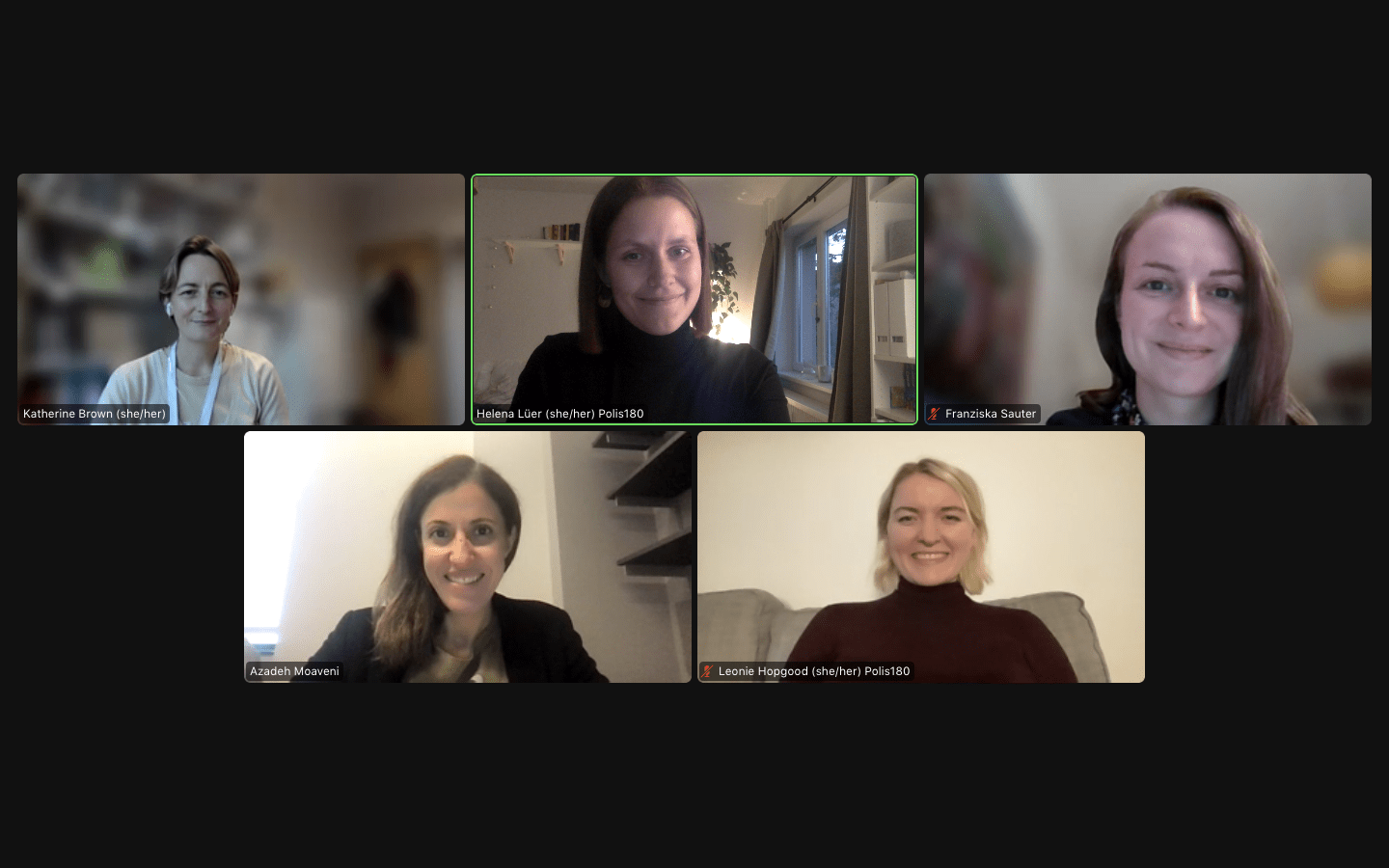Event Report
Violent Extremism and the role of Gender
Instrumentalisation of Religion
October 5 2022

The role of religion as a factor in violence is a widely discussed and controversial topic. Religion can be instrumentalized and misused for various purposes – including violence. Although the influence of religion on violence is not clear, it is certain that extremist groups can exploit religion for violence within their own ranks and against “non-believers.” As a part of this, gender discrimination and violence against marginalized groups occur repeatedly.
To get a closer look at the dynamics between religion, gender and extremism we spoke with two well known experts in this field: Azadeh Moaveni, journalist and associate professor director at New York University, and Dr. Katherine Brown, head of the Department of Theology and Religion at the University of Birmingham.
Dr. Katherine Brown, whose research focuses on Resistance, Gender and Political Islam, began by explaining that the common conception about women joining extremist groups like ISIS are generally one-dimensional. In fact the reasons are not simply driven by emotions or religion but appear to be diverse and complex. ISIS was able to develop a big and connecting narrative for young people. The promise to solve everyday struggles and to start a new and radical life was described in gendered forms. Women were promised to help others and build a new society while men could see themselves as actors in an ‘adventure’. A promise that reality didn’t fulfil.
Azadeh Moaveni, author of “Lipstick Jihad, Honeymoon in Tehran” and „Guest House for Young Widows”, followed this thought and described the pragmatism she found in female members of religious extremist groups. For example in Boko Haram, women used the participation to navigate in a region where the state is absent.. The extremist group can for example protect them from rape or secure the education of their children. Furthermore, religious extremist groups offer women the opportunity to be an active part of an alleged utopian community – as a doctor, teacher or recruiter.
After these inputs the role of religion and the difference to political extremism was discussed. In violent religious groups the distinction between politics and religion is not quite clear, because they deny diversity and often only accept one single interpretation of religion – they become totalitarian. The events in Iran show how religion, gender and extremism still influences the political and social landscape. Therefore, the inclusion of gender- and context-sensitive analyses in (feminist) policy-making is urgently needed.
Text by Franziska Sautter